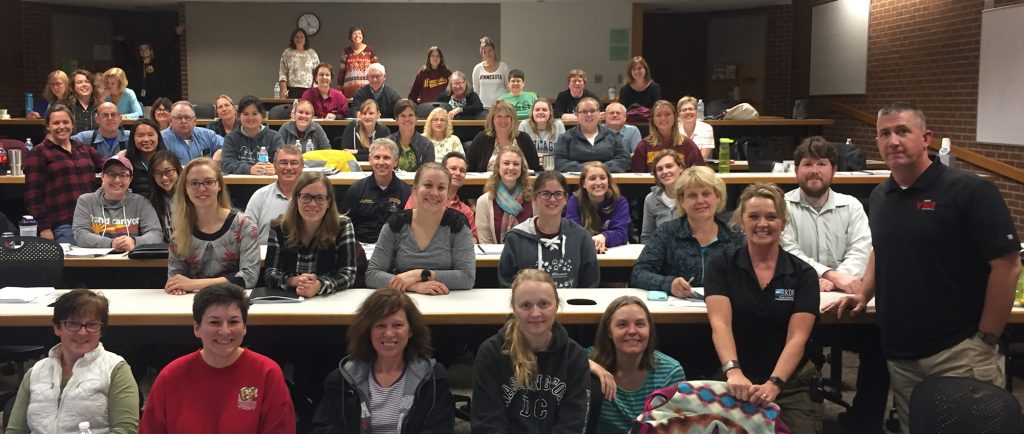Animals in Disasters Course Debuts at Veterinary College
Chris Brunner, November 13, 2017
 This was the debut appearance of All Hazards Preparedness for Animals in Disasters at a veterinary college as the University Of Minnesota College Of Veterinary Medicine hosted the course on October 7, 2017.
This was the debut appearance of All Hazards Preparedness for Animals in Disasters at a veterinary college as the University Of Minnesota College Of Veterinary Medicine hosted the course on October 7, 2017.
Many in the class of 55 included UM College of Veterinary Medicine veterinarians and veterinary students including University of Minnesota Veterinary Public Health residents and Ecosystem Health fellows. Other participants included USDA Animal Care, MN Board of Animal Health, MN National Guard, University of Minnesota School of Public Health, county Emergency Management personnel, University of Minnesota Center for Bioethics, University of Minnesota Medical Reserve Corps, Minnesota Veterinary Medical Reserve Corps, and MN Hooved Animal Rescue.
Tracey Stevens, an Instructor/Trainer with WIFSS, presented the course, with the support of Dr. Michelle Willette, a staff veterinarian at the University of Minnesota, College of Veterinary Medicine’s Raptor Center.
The AWR 328 course provided a forum for individuals from many different perspectives to meet together and think through what would be needed in order to effectively respond to a disaster that impacts animals in a rural region in the U.S.
Participants completed online pre-work before attending the workshop on October 7. The pre-work gave an overview of emergency management, and also provided a few key facts that are important to understand when dealing with animals. The pre-work allowed everyone to have the proper background information to draw upon when working in small groups on disaster response scenarios in class.
The course evaluations were overall very positive. Most found the material to be useful to them in their jobs, or future careers. All participants rated the interactive problem-solving activities very highly and several provided feedback that indicated that this was the best or most favorite part of the course.
Offering this training at the College of Veterinary Medicine provided a unique opportunity for faculty and students to work together and interact outside of the traditional student-professor roles. It also provided an opportunity for government representatives to interact with faculty at the vet school. These connections could be very useful for emergency planners preparing for disasters that may impact animals in their communities. Knowing the resources available at the College of Vet Med, and knowing the subject-matter experts, could prove very valuable in future disaster situations.
AWR 328 is sponsored by the Department of Homeland Security (DHS), the Rural Domestic Preparedness Consortium, and WIFSS. DHS gives certificates to those completing the course which can be used as proof of training to become part of a disaster team responding to disasters.
